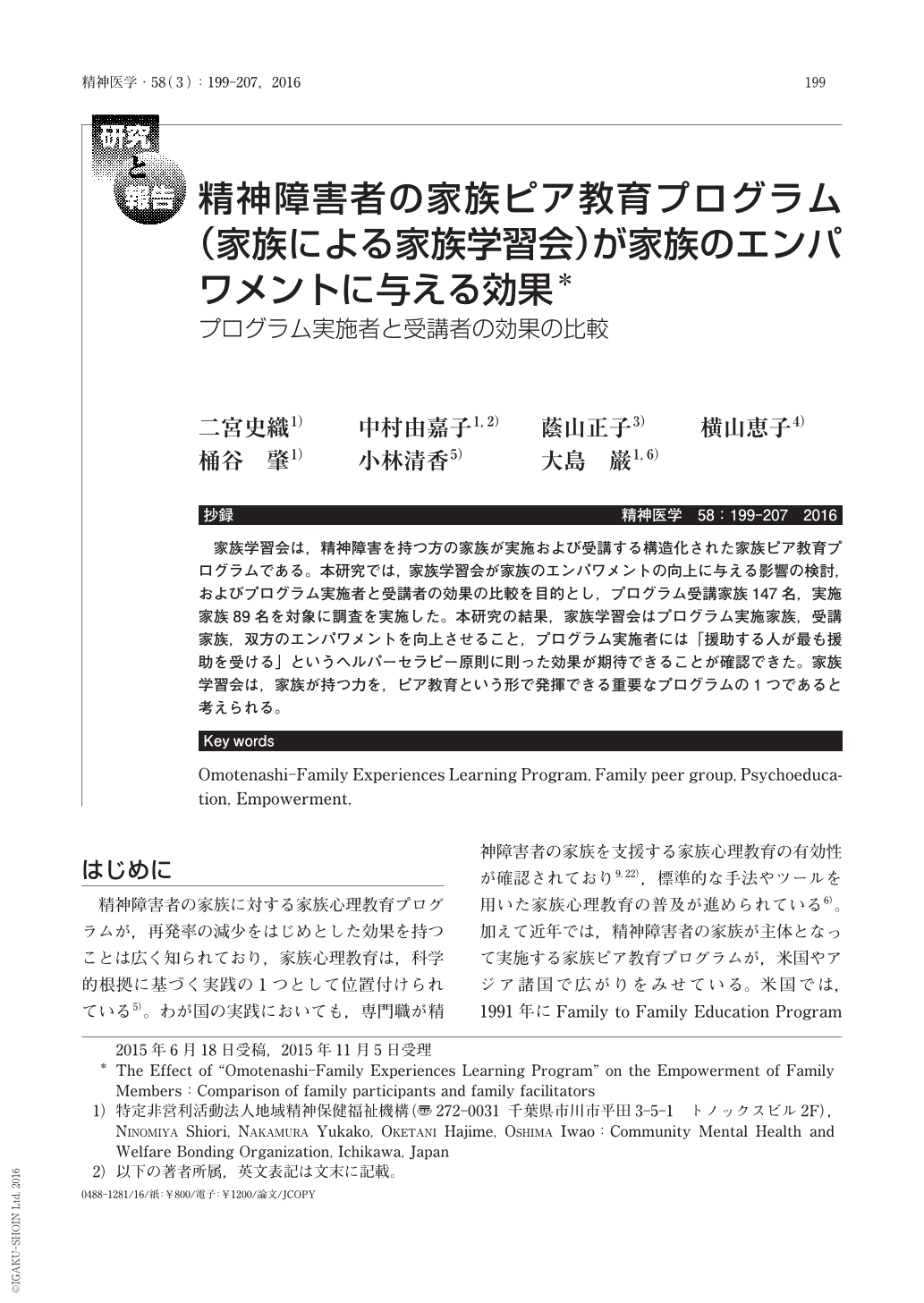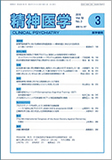Japanese
English
- 有料閲覧
- Abstract 文献概要
- 1ページ目 Look Inside
- 参考文献 Reference
抄録
家族学習会は,精神障害を持つ方の家族が実施および受講する構造化された家族ピア教育プログラムである。本研究では,家族学習会が家族のエンパワメントの向上に与える影響の検討,およびプログラム実施者と受講者の効果の比較を目的とし,プログラム受講家族147名,実施家族89名を対象に調査を実施した。本研究の結果,家族学習会はプログラム実施家族,受講家族,双方のエンパワメントを向上させること,プログラム実施者には「援助する人が最も援助を受ける」というヘルパーセラピー原則に則った効果が期待できることが確認できた。家族学習会は,家族が持つ力を,ピア教育という形で発揮できる重要なプログラムの1つであると考えられる。
The Omotenashi-Family Experiences Learning Program (Omotenashi-FELP) is a structured family peer educational program in Japan. The purposes of this study were to examine the influence of the Omotenashi-FELP on the empowerment of family members of individuals with mental illness, and to clarify the differences in the effects of the program on participants and facilitators. All of the participants and the facilitators were family members of individuals with mental illness. Questionnaire surveys were distributed to family members including participants (n=147) and facilitators (n=89). The results of a paired t-test suggest that the Omotenashi-FELP reduced worry and improved empowerment for both the participants (worry p<0.01;empowerment:p=0.02) and the facilitators (worry p=0.01;empowerment p=0.03), and increased the “inner sense of temporality and future”, which is the factor of hope among the facilitators (p<0.01). Based on covariance analysis, “inner sense of temporality and future” (p=0.03) and empowerment (p=0.03) were higher among the facilitators than among the participants. These findings suggest that the Omotenashi-FELP improved empowerment among both facilitators and participants. In addition, we confirmed that the Omotenashi-FELP could be expected to have the “helper therapy principle” effect for facilitators. Therefore, the Omotenashi-FELP is a useful program for improving empowerment among family members.

Copyright © 2016, Igaku-Shoin Ltd. All rights reserved.


